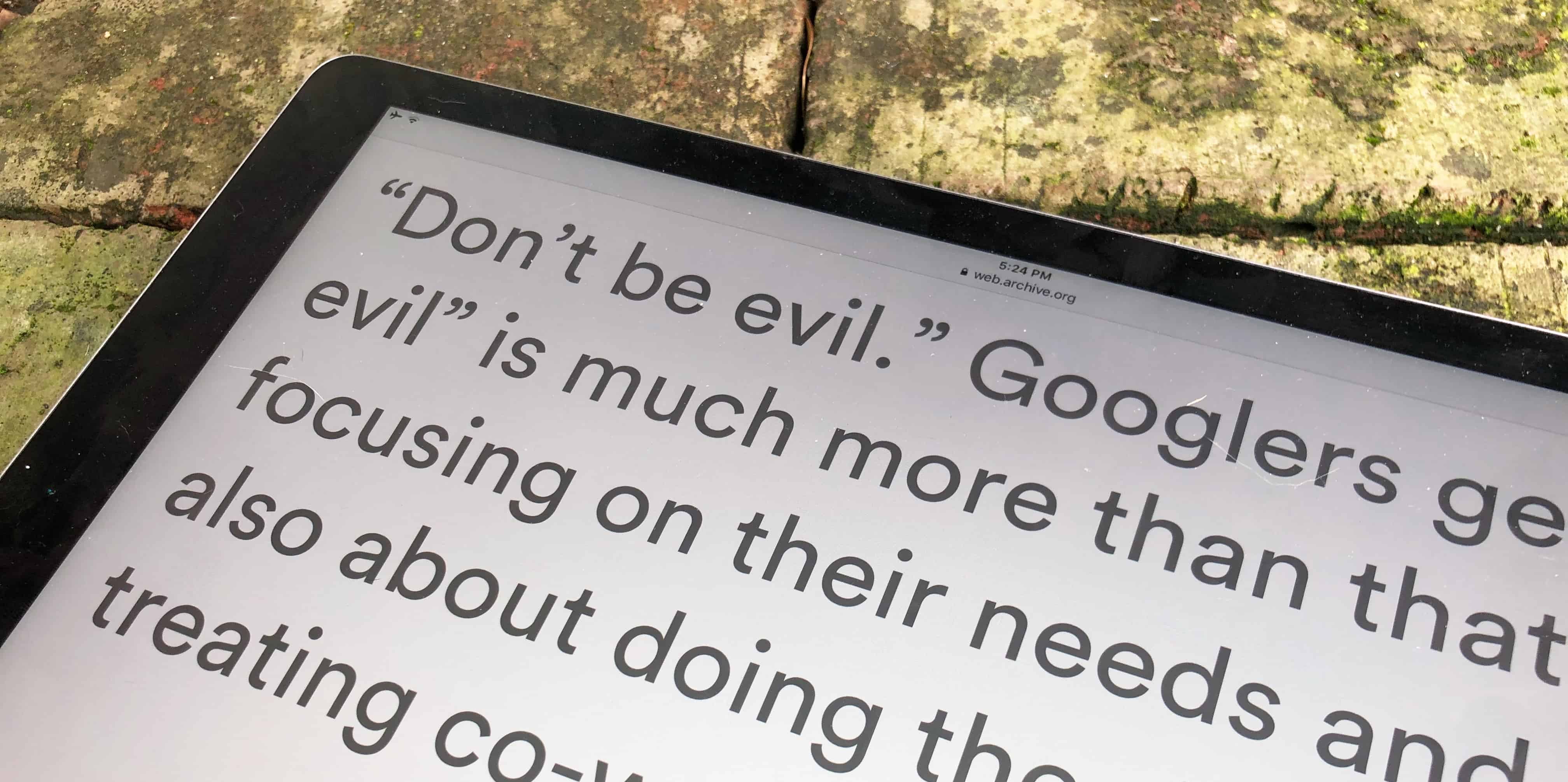Google’s founders tried to define their corporate philosophy with a single phrase: “Don’t be evil.” Now that phrase has all but disappeared from the company’s official code of conduct.
But there are questions about whether Google could be anything but evil, given that its entire business model is violating the privacy of its users.
Just a few months ago, the Google Code of Conduct began with:
“Don’t be evil.” Googlers generally apply those words to how we serve our users. But “Don’t be evil” is much more than that. Yes, it’s about providing our users unbiased access to information, focusing on their needs and giving them the best products and services that we can. But it’s also about doing the right thing more generally – following the law, acting honorably, and treating co-workers with courtesy and respect.
All of that has since been taken down. The only mention of the famous phrase it as the very bottom, in paragraph 90: “And remember… don’t be evil.”
A questionable business plan
Facebook has been much in the news for the amount of data on users and non-users it collects and sells. Founder/CEO Mark Zuckerberg will testify on this issue before the European Parliament tomorrow.
Google, on the other hand, has received much less attention, but that’s mostly because of Facebook’s well-publicized problems with allowing millions of people’s personal data to leak out. Google collects much more data that Facebook does, but so far has kept it from leaking.
Anyone who uses Google services must be aware that the company stores all search and email activity. Those who have an Android phone are tracked constantly. Google knows everywhere the user has been and how long they spent there. It also stores call logs, text messages, and voice messages.
One Android user made headlines after discovering that a copy of his personal data downloaded from Google took up 600MB.
Google uses this data to sell targeted advertising. In other words, the users of Google’s services aren’t its customers, they’re the product being sold.
Apple committed to privacy
iPhone users don’t have to worry that Apple is spying on them. A pop-up window in iOS 11.3 reveals the company’s attitude: “Apple believes privacy is a fundamental human right, so every Apple product is designed to minimize the collection and use of your data, use on-device processing whenever possible, and provide transparency and control over your information.”
Violating customer privacy isn’t Apple’s business model. “We could make a ton of money if we monetized our customer — if our customer was our product. We’ve elected not to do that,” CEO Tim Cook said in a recent interview.
Apple never had to say “Don’t be evil” because it never was. The fact that Google no longer emphasizes a policy of not being evil is, perhaps, just accepting reality.


